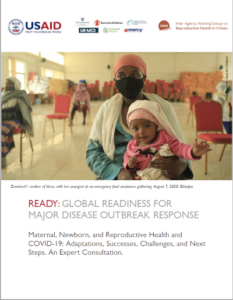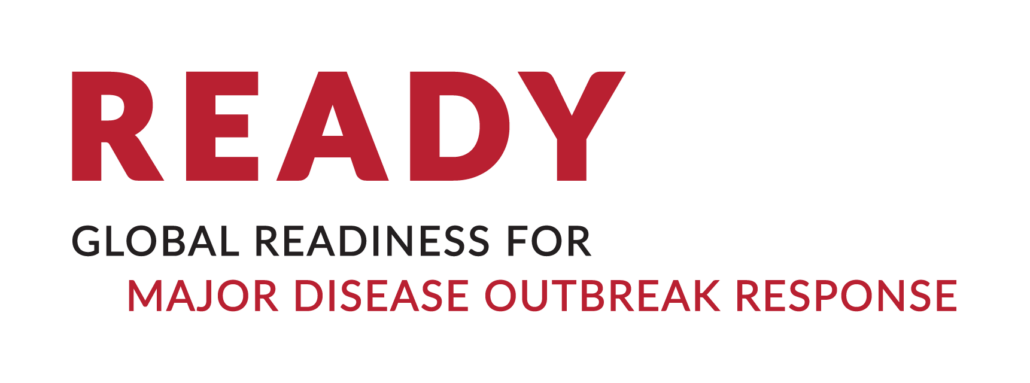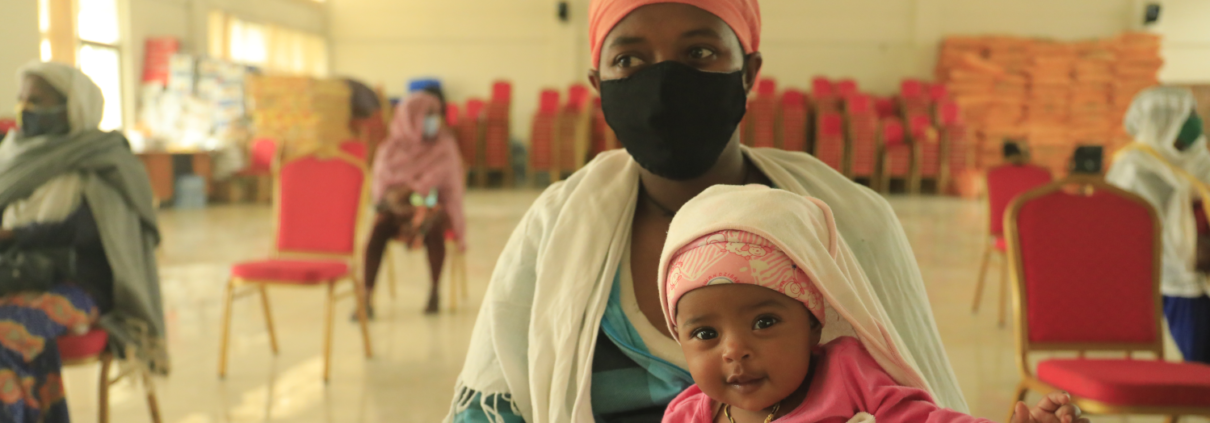Maternal, Newborn, and Reproductive Health in Emergencies (MNRHiE) and COVID-19: Adaptations, Successes, Challenge and Next Steps. An Expert Consultation
November 2020 | Adaptations, Successes, Challenges, and Next Steps: An Expert Consultation

This report presents key findings and recommendations from a series of four discussion-based expert consultation workshops. These consultations—organized by the READY initiative and the Inter Agency Working Group on Reproductive Health in crises (IAWG)—brought Maternal, Newborn, and Reproductive Health and infectious disease stakeholders together to review MNRH in the preparedness/outbreak response context and identify priorities for the ongoing pandemic. This report compiles and shares participants’ experiences and lessons learned, and identifies challenges and gaps in implementing humanitarian MNRH services in COVID-19 across the world. The recommendations developed from these consultations are intended to support MNRH services and actors to improve access and quality of care to vulnerable populations in future waves of COVID-19 and in future outbreaks.
Download | MNRH and COVID-19 Consultation Report (37 pages | 1MB .pdf)


This website is made possible by the support of the American People through the United States Agency for International Development (USAID) under the READY initiative. READY (not an acronym) is supported by USAID’s Bureau for Democracy, Conflict, and Humanitarian Assistance, Office of U.S. Foreign Disaster Assistance (OFDA) and is led by Save the Children in partnership with the Johns Hopkins Center for Humanitarian Health, the Johns Hopkins Center for Communication Programs, UK-Med, EcoHealth Alliance, and Mercy Malaysia. The contents of this website are the sole responsibility of Save the Children. The information provided on this website does not necessarily reflect the views of USAID, any or all consortium partners, or the United States Government, and is not official U.S. Government information.


